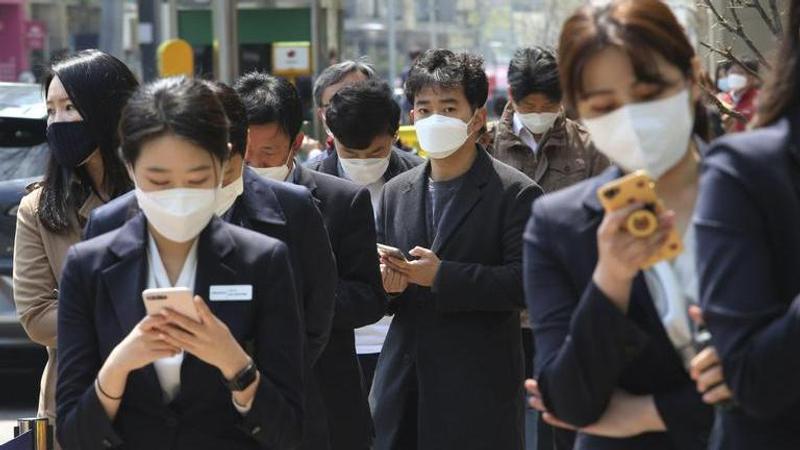Published 20:13 IST, April 20th 2020
South Korea: People return to work, public places as country relaxes lockdown restrictions
South Korea on April 20 began returning to normalcy after the government eased some of the lockdown restrictions due to decreasing coronavirus cases.

Advertisement
South Korea on April 20 began returning to normalcy after the government eased some of the lockdown restrictions due to decreasing coronavirus cases. South Koreans are now allowed to return to work and visit restaurants and other public places after a month-long of strict lockdown. Although the government eased some of the restrictions on April 19, the lockdown was extended for another 15 days, until May 6. The latest relaxations mean that churches in the country will no longer have to follow the lockdown and sporting events can continue as normal with audiences.
South Korea has become a model for the world in handling the disease outbreak and straightening its curve. South Korea ramped up testing after the first case was reported in the country in early February. It set up testing centres at gas stations to detect cases quickly and treat them accordingly. Last week, the East Asian country became the first nation in the world to hold national elections amid lockdown. South Korea took measures like setting up of separate polling stations for people in quarantine and asking voters to stand three feet apart from each other while casting their ballots.
According to data by worldometer, South Korea has recorded 10,674 confirmed coronavirus cases so far, of which 236 people have lost their lives, with 55 patients still under critical condition. There are currently 2,324 active infections in South Korea, while 8,114 have been treated successfully.
Coronavirus outbreak
The coronavirus outbreak has infected over 2.42 million people globally and has killed nearly 1,66,000 patients since it first broke out in December 2019. The virus is believed to have originated from a seafood market in the Chinese city of Wuhan, the initial epicentre of the disease, where animals were reportedly being traded illegally. The United States, Italy, Spain, France, Iran and the United Kingdom are currently the most affected countries in the world.
(Image Credit: AP)
20:22 IST, April 20th 2020




